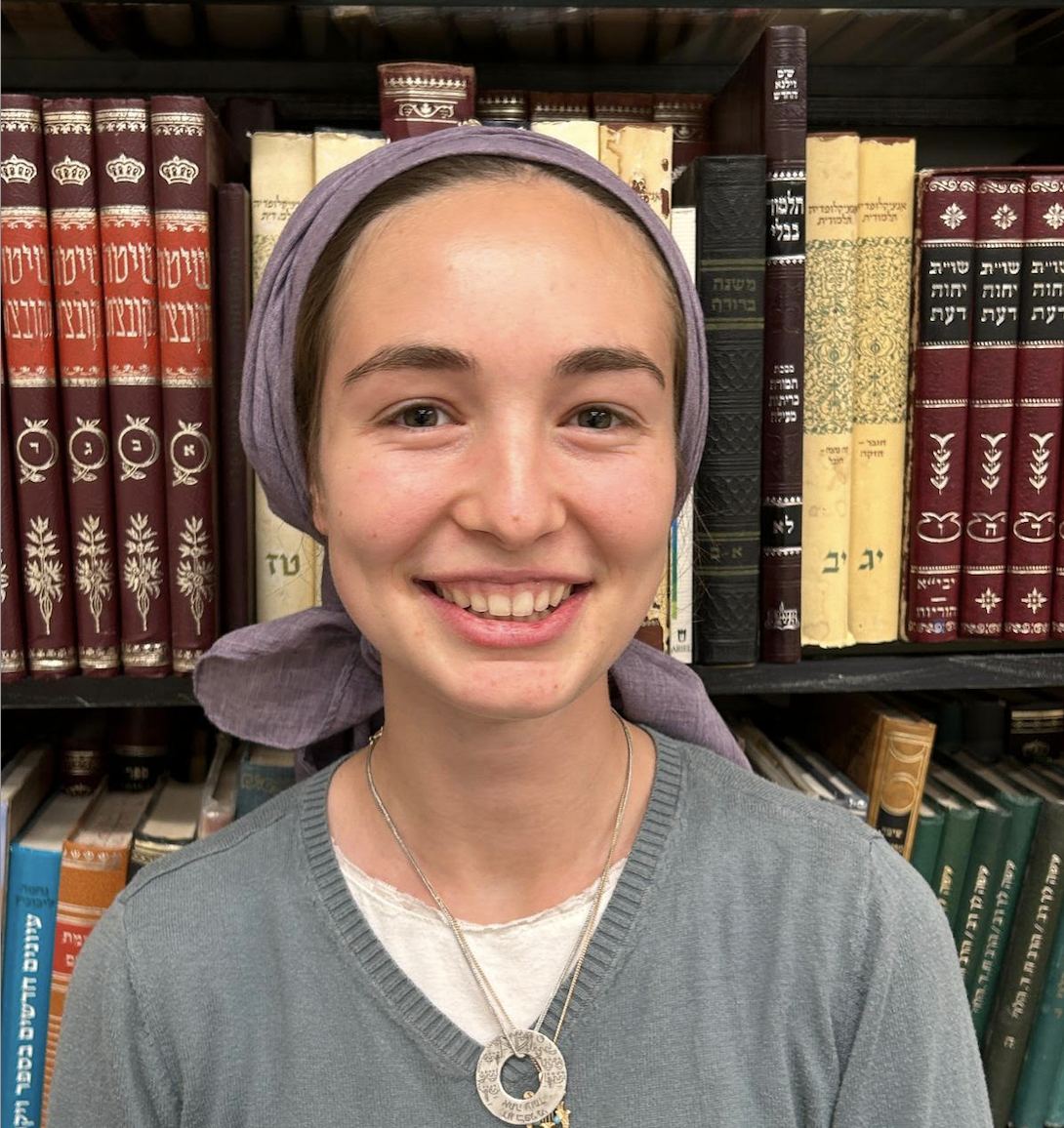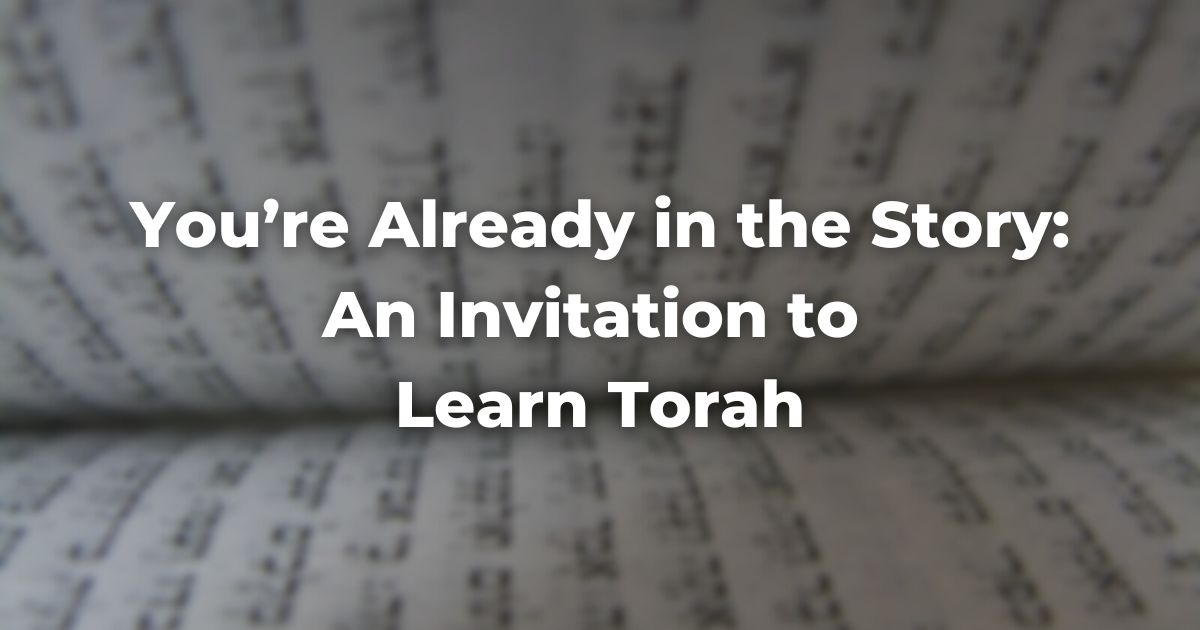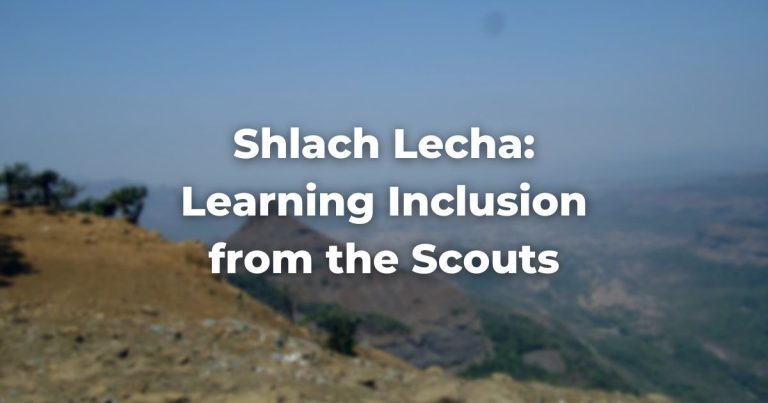I think learning TorahRefers to the first five books of the Hebrew Bible, the Tanakh, also called the Five Books of Moses, Pentateuch or the Hebrew equivalent, Humash. This is also called the Written Torah. The term may also refer to teachings that expound on Jewish tradition. Read more is important and I want you to know why.
Not because I want to convince you, but because Torah is a lifeline for me.
Learning Torah is a bit like sharing a playlist I keep returning to, something that helps me make sense of being alive in this strange, beautiful, painful world. I don’t turn to it just out of obligation, but out of love, curiosity, and a deep sense of need. And I think you might find something in it that resonates, too.
What do I mean by Torah?
At its simplest, Torah means “teaching” or “guidance.”
We use the word Torah to refer to the foundational texts of Jewish wisdom, starting with the Five Books of Moses, and extending outward to include centuries of interpretation, debate, and commentary, like the MishnahA collection of rabbinic teachings edited in Israel around 225 CE. Organized in six sedaraim by subject matter and dealing with both ritual and civil law. Both the Jerusalem and Babylonian Talmud are expansive discussions of the Mishnah. Read more, the TalmudReferring to one of two collections, the Jerusalem and Babylonian Talmuds, edited in the 6th century, that contains hundreds of years of commentary, discussion, and exploration of the ideas in the Mishnah. One could describe it as Mishnah + Gemara = Talmud Read more, midrashThis word is used in two ways, as both a concept and a literature. As a concept, midrash is the expansive interpretation of biblical texts. The term is used to describe the practice of rabbinic interpretation. As a text, it refers to specific collections of interpretations, particularly from the third to ninth centuries in the Land of Israel and Babylonia. Plural: Midrashim
Read more, and more.
Torah is not just a book. It’s an ongoing conversation. A sacred tradition that struggles with what it means to live a meaningful, ethical, and connected life.
Here’s why it matters to me:
1. Torah Teaches Us How to Be Human (Not Perfect)
The Torah doesn’t give us sanitized heroes or flawless models.
It’s full of people who are complex, messy, real. They fight (Jacob & Esau), forgive (Joseph, Abigail), run away (Hagar), return (Moses, Naomi), break trust (Delilah), and try again (Jonah). Their stories aren’t cautionary tales. They are roadmaps.
Torah doesn’t call us to escape or transcend our humanity. Instead, it invites us to embrace it more deeply. Take our forefather, Jacob, for example, he physically wrestles with a man/angel, his name is changed to Israel, and he walks away limping (Genesis 32:22-32). This story is laden with meaning. That limp is not a sign of defeat but of blessing; it represents the profound change born from struggle.
When I learn Torah, I am reminded that I don’t need to have all the answers.
What matters to my learning is showing up, bringing my questions and my imperfections, and having a willingness to wrestle with the text and the journey. This approach isn’t just comforting; it offers a grounding way to live.
2. Torah Connects Us to a Bigger Story (Without Losing Our Own)
When I feel like I’m drifting, some might experience it as floating endlessly, scrolling, reacting, and forgetting what matters, Torah brings me back. It roots me in a story that’s been unfolding for thousands of yearsת and somehow makes space for mine within it.
Torah study isn’t about blind obedience. It’s a sacred conversation. The Talmud is filled with passionate, respectful, and often creative debates amongst our Sages. You can feel it on every page. Sages debate questions big and small, not to win, but to find what matters.
For example, in the Talmud in Pesachim 68b, the Rabbis discuss what the balance between eating, drinking, and studying Torah on Yom Tov should be. Rabbi Eliezer says a person can choose either to eat and drink or to spend the whole day studying Torah, since there’s no specific Mitzvah to eat on a festival. Rabbi Yehoshua disagrees, insisting that the day should be divided, half for eating and drinking, which he considers obligatory, and half for Torah study.
We don’t inherit certainty. We inherit the responsibility to keep showing up to the debate.
You don’t need to accept every word as literal.
You don’t have to check your doubts at the door.
In fact, our tradition needs your voice. Torah invites you to bring your story and your questions and to see what happens when they meet something ancient and alive.
Sometimes, what I’m learning challenges me, and sometimes, it comforts me. But it always connects me to something deeper than the noise.
3. Torah Gives Us Tools to Live with Purpose (Even When Life Feels Directionless)
We spend a lot of time being told what to achieve, what to buy, and how to win. But Torah asks a different question: What would it look like to live not just for yourself, but for a reason?
Every time I learn Torah, this question comes alive. Whether it’s the teaching from Sukkah 49b, “Anyone who performs charity and justice is considered as though they filled the entire world with kindness,” or the laws about speech, prayer, and human dignity, Torah is subversively reshaping my inner compass.
It doesn’t hand out easy answers. But it offers a framework. A practice. A way of seeing the world that prioritizes integrity over image, and progress over perfection.
In a society that rewards distraction, learning Torah is a form of rebellion. A choice to care, show up with humility and grow. Learning Torah is a choice to be awake.
So, why learn Torah?
Because you’re already asking big questions.
Because you care about being a good friend, a decent human, someone who lives with meaning.
Because Torah isn’t only about religion, it’s about reality.
It’s about becoming and it’s about holding complexity with courage.
You don’t need to know Hebrew. You don’t need a Jewish day school education. You don’t even need certainty about what you believe. All you need is the willingness to listen, and, when you’re ready, to add your voice to the conversation.
The truth is, you’re already in the story.
Learning Torah just gives you language and rhythm to shape your part of it.
Author
-

Hannah Weizman (Plotkin) is a passionate Torah learner and Jewish educator. She spent 9 summers at Camp Ramah and 5 years in USY, serving as International Rel/Ed and International President. After high school, she deepened her learning with a year at Midreshet Amudim in Jerusalem and currently learns at Yeshivat Drisha in Kfar Etzion. Hannah lives with her husband in the holy land of Israel, where she continues to engage deeply with Torah, community, and Jewish life.
View all posts




